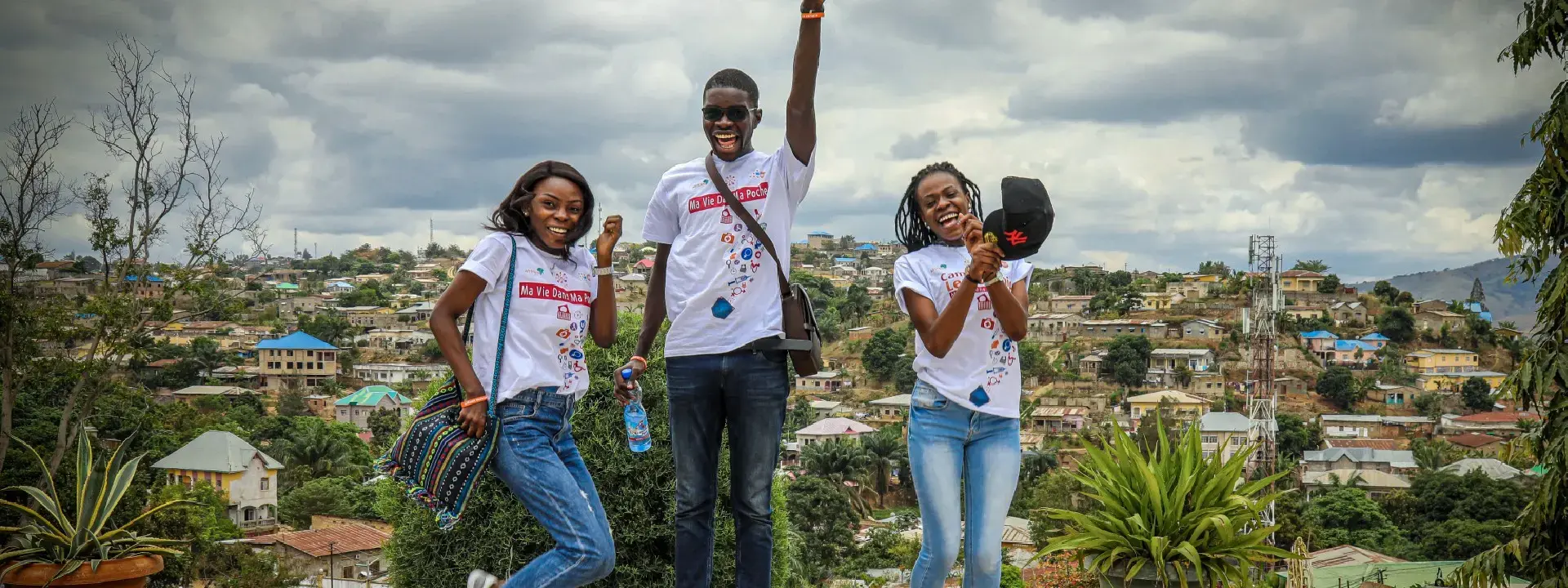In the Democratic Republic of Congo, it is estimated that there are over 8,000,000 people between the ages of 15 and 17. Considering 16 as the median age at first sexual intercourse (DHS 2013-2014), this represents over 8,000,000 individuals, some of whom are preparing to enter the first years of their reproductive lives, while others have already been in their early years for over a year.
This period is crucial for many girls. Early or forced marriage, unwanted pregnancy, a sexually transmitted infection, including HIV, or alcohol or drug abuse, or illegal immigration, will force them to drop out of school, thus depriving them of the fundamental right inherent to every human being: to have a dream and see it come true.
Through its cooperation programs with the Democratic Republic of Congo, UNFPA enables hundreds of thousands of adolescent girls and young women to avoid early and unwanted pregnancies, protect themselves against STIs/HIV/AIDS, and be safe from early marriage and sexual violence. This is primarily through its comprehensive sexuality education and life skills programs for all, the empowerment of girls, the provision of sexual and reproductive health services adapted to the needs of adolescents and young people, and support for their participation at all levels of decision-making and their community engagement for peace, security, and social cohesion.
However, with the Covid-19 pandemic, significant gains made so far in sexual and reproductive health and rights have been lost. Indeed, the recurring lockdowns implemented in an attempt to stem the spread of this disease caused by the SARS-CoV-2 virus have severely disrupted these various programs and affected adolescents' and young people's access to sexual and reproductive health services, particularly family planning. Similarly, the resulting economic disruptions have increased the vulnerability of adolescent girls and young people to violations of their rights, such as the right to be free from early and/or unwanted marriage, sexual violence, and other forms of sexual abuse and exploitation.
UNFPA is working to reposition the sexual and reproductive rights of adolescents and young people among national priorities, with a particular focus on those most affected by the COVID-19 pandemic; in this case, out-of-school adolescent girls and young people, primarily those living with disabilities or living with HIV.
To this end, UNFPA supported the integration of comprehensive sexuality education into the national curriculum for specific areas of education for students with disabilities, as well as into training and vocational curricula.
To further mobilize national and international public opinion on sexual and reproductive rights, UNFPA participated in major national, regional, and/or international events held in the DRC, such as the Great Lakes Peace Festival, the "AMANI Festival," and the 9th Francophonie Games, where integrated family planning services were also offered to thousands of adolescents and young people.
UNFPA also provided leaders of the country's major youth organizations and networks with the technical and financial support they needed to actively participate in the electoral process. This enabled them, among other things, to organize a major digital campaign to combat disinformation, manipulation, and violence during the election period. This campaign, called "homeland before our parties," aimed to prevent the electoral violence that had, until then, marred the three previous electoral cycles.


